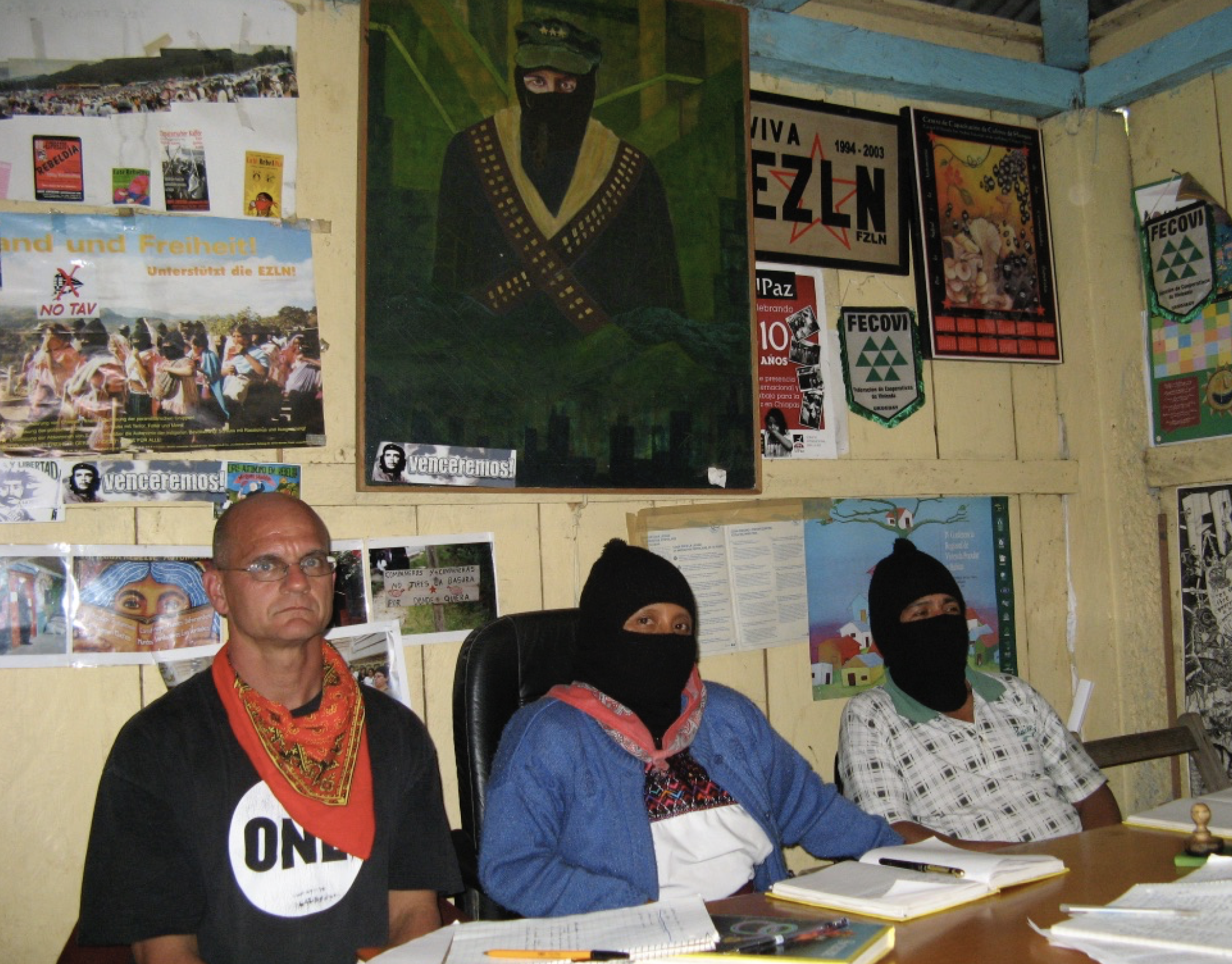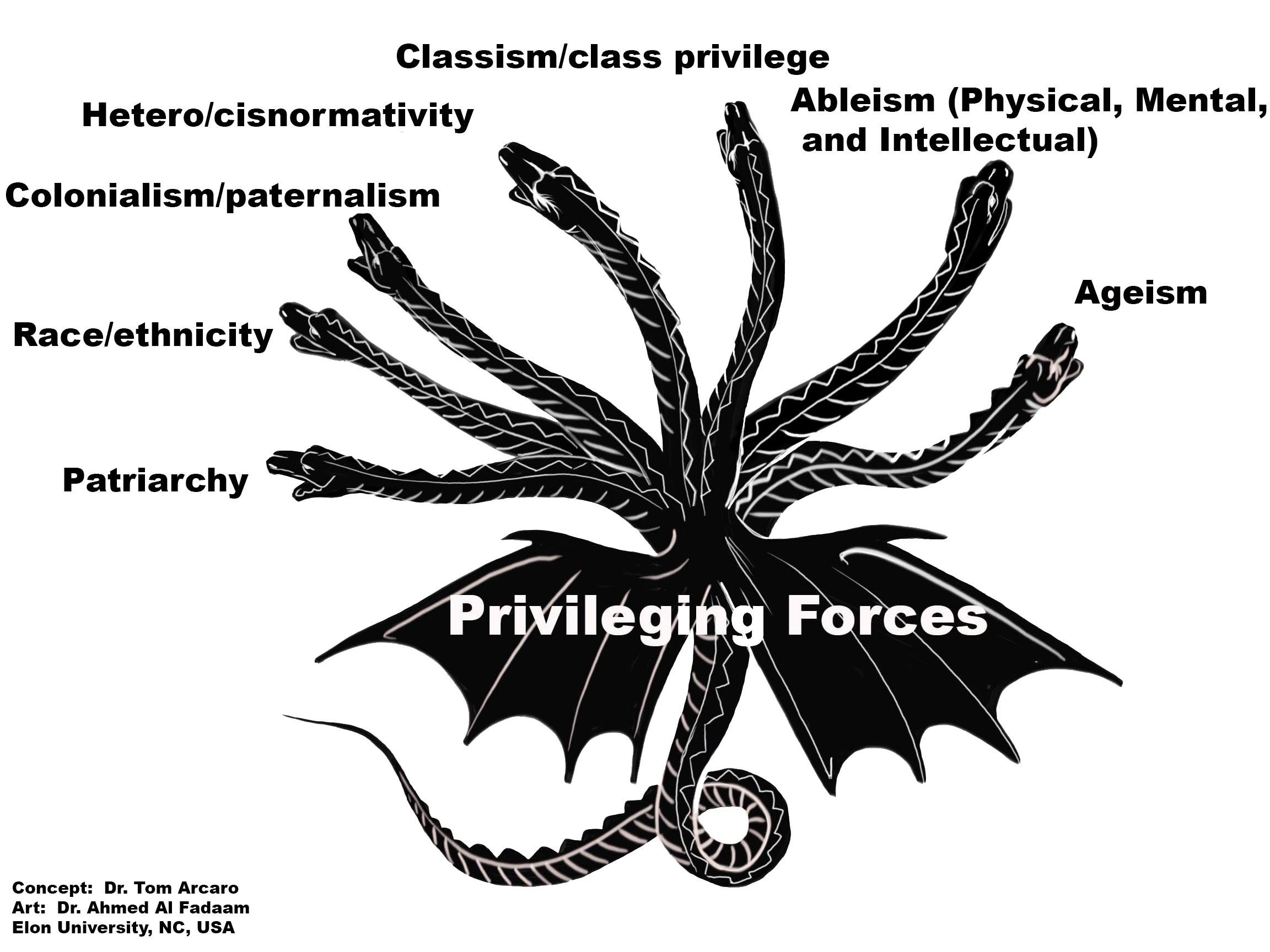On the origin of the Hydra concept
I have been teaching sections of Introduction of Sociology every semester for the last four decades. Over the years every course text I’ve used has had useful chapters on ‘Race and Ethnic relations’, Social stratification’, and ‘Sex and gender.’ Through trial and error, I have adapted various definitions of the many ‘isms’, but about a 20 years ago I began using this definition of racism:
Racism is an ideology of domination and subordination based on the assumption of the inherent biological and/or cultural inferiority of other groups and the use of this assumption to legitimize or rationalize the inferior or unequal treatment of this group.
About ten years ago I started testing my students ability to ‘connect the dots’ by giving them the definition of racism and then immediately asking for a good definition of sexism, and then classism. Most picked up on the connection quickly.
Sexism is an ideology of domination and subordination based on the assumption of the inherent biological and/or cultural inferiority of females and the use of this assumption to legitimize or rationalize the inferior or unequal treatment of women.
Classism is an ideology of domination and subordination based on the assumption of the inherent biological and/or cultural inferiority of poor people and the use of this assumption to legitimize or rationalize the inferior or unequal treatment of poor people.
When I was invited to speak at the 2019 ALNAP conference about ‘privileging forces’ impacting how the humanitarian sector functions, I pulled an idea from Subcomandante Marcos of the EZLN. Marcos once again warned about the

Hydra of capitalism and the rise of a virulent neoliberalism particularly in the West. I have had the honor of spending time in Zapatista territory and learning from these indigenous leaders. The EZLN movement remains strong after decades of struggle, and there are plans next spring for an EZLN party to travel to Europe to join with like-minded groups in the global and growing effort to confront toxic neoliberal ideologies.
I asked my brother and collaborator, himself an Iraqi refugee, to drawn the vision I had in my head. Our original draft of the Hydra had only five heads, but during the ALNAP conference in Berlin I soon realized more heads were called for, and the first Hydra model was redrawn to include Ableism and Ageism. 
Using my original definitional frame, here are the other ‘heads’ or ‘isms.’
Colonialism/paternalism is an ideology of domination and subordination based on the assumption of the inherent biological and/or cultural inferiority of peoples in the majority world and the use of this assumption to legitimize or rationalize the inferior or unequal treatment of these groups.
Hetero/cisnormativity an ideology of domination and subordination based on the assumption of the inherent biological and/or cultural inferiority of non-gender comforting/queer people and the use of this assumption to legitimize or rationalize the inferior or unequal treatment of this group.
Ableism is an ideology of domination and subordination based on the assumption of the inherent biological and/or cultural inferiority of differently abled people and the use of this assumption to legitimize or rationalize the inferior or unequal treatment of this group.
Ageism is an ideology of domination and subordination based on the assumption of the inherent biological and/or cultural inferiority of older or younger people and the use of this assumption to legitimize or rationalize the inferior or unequal treatment of these groups.
All of the above definitions need expanding and deepening, of course, but taken together they can serve to underline my critical point, namely all of these ‘isms’ are fundamentally driven by the same process; they all begin with one group othering another and then exploiting any asymmetry of power.
Key terms in the basic definition include
- Ideology
- Domination and subordination
- Assumption of biological and/or cultural inferiority
- Legitimize and rationalize inferior or unequal treatment.
An ideology is sometimes explicit and obvious, but oftentimes an ideology can be an array of background ideas that, when pressed, an individual may have trouble clearly articulating. Domination and subordination can take many forms ranging from subtle marginalization all the way to ‘ethnic cleansing’, pogroms, and genocide. Assumptions of biological and/or cultural inferiority are asserted by the dominant group and this frequently leads to the dehumanization And counteranthropomorphization of those in the ‘inferior’ group, and this makes any harmful actions seem legitimate or rational.
The Hydra metaphor seems useful, with may students frequently pointing out that ‘I had never thought about how all of these social justice issues were connected.’ I always ask each class of students to critique my definitions and this Hydra model, and their ideas are frequently challenging and useful. The Hydra continues to evolve.
Post script
Need a laugh? Here is a useful video exploring complexities of recognizing privileged statuses.
Then 2020 happened
Since returning from the ALNAP conference I have expanded on the Hydra concept in a series of blog posts, to be included in my forthcoming book “Hearing Voices: Dispatches from the margins of the humanitarian sector.
Then 2020 happened. COVID-19 put the worlds into a social, psychological and economic downward spiral, and then George Floyd was murdered and #BlackLivesMatter took on massive, global importance. The Hydra needs a facelift, and in the next several days I’ll post more about this.


 Follow
Follow